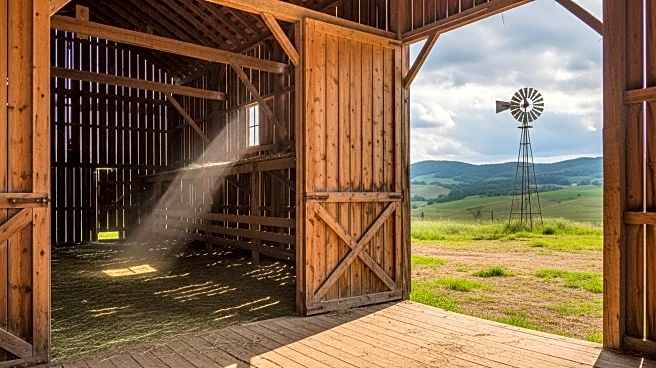What's Happening?
Farmers in the UK are reporting a significant decrease in hay yields, with some areas experiencing reductions of 50% or more due to one of the hottest and driest summers on record. The shortage has led to increased hay prices and reliance on imports from France. Experts warn that this could be a 'canary in the coal mine' moment, indicating broader climate change impacts on agriculture.
Why It's Important?
The decline in hay production highlights the vulnerability of agriculture to climate change, affecting food supply chains and livestock management. Rising hay prices could impact farmers' profitability and lead to increased costs for consumers. This situation underscores the need for adaptive strategies in agriculture to mitigate climate-related risks.
What's Next?
Farmers and agricultural stakeholders may need to explore alternative crops and farming practices to adapt to changing climate conditions. Policymakers could implement measures to support affected farmers and promote sustainable agricultural practices. The situation may also prompt further research into climate-resilient crops and technologies.
Beyond the Headlines
The hay shortage serves as a reminder of the interconnectedness of global agriculture and climate systems. It may lead to increased advocacy for climate action and investment in renewable energy to reduce greenhouse gas emissions. The event could also influence public perception of climate change and its immediate impacts.











